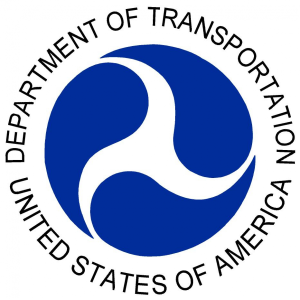
The Air Carrier Access Act 1986
The Air Carrier Access Act 1986 applies to service dog owners because it prohibits discrimination in air transportation by domestic and foreign air carriers against qualified individuals with physical or mental impairments. It applies only to air carriers that provide regularly scheduled services for hire to the public.
Requirements address a wide range of issues including boarding assistance and certain accessibility features in newly built aircraft and new or altered airport facilities.
People may enforce rights under the Air Carrier Access Act 1986 by filing a complaint with the U.S. Department of Transportation, or by bringing a lawsuit in Federal court. For more information or to file a complaint, contact:
Aviation Consumer Protection Division
U.S. Department of Transportation
400 Seventh Street, S.W.
Room 4107, C-75
Washington, D.C. 20590
www.transportation.gov/airconsumer
(202) 366-2220 (voice)
(202) 366-0511 (TTY)
The first Federal legislation to directly address public access rights of people with disabilities who have service animals was the Air Carrier Access Act of 1986. The act amended the Federal Aviation Act of 1958 to provide that prohibitions of discrimination against handicapped people apply to air carriers. Regulations clarify that air carriers must permit “dogs and other service animals used by handicapped people to accompany the people on a flight”. As a result of these 1986 stipulations regarding air transport, the 1990 Americans with Disabilities Act does not reference air carriers in its Title II and III transportation requirements.
The ACAA regulations provide one of the most specific statements of Federal policy regarding accommodation of service animals. While efforts to implement other Federal laws, such as the Americans with Disabilities Act, rely largely on technical assistance guidance, regulatory examples, and settlements to guarantee access and accommodation rights for disabled people who have service animals, the ACAA directly regulates these rights.
The act requires air carriers to permit service animals to accompany people with disabilities on flights (14 CFR 382.55 (a)).
-
Carriers shall accept as evidence that an animal is a service animal identification cards, other written documentation, presence of harnesses or markings on harnesses, tags, or the credible verbal assurances of the qualified handicapped person using the animal.
-
Carriers shall permit a service animal to accompany a qualified handicapped individual in any seat which the person sits, unless the animal obstructs an aisle or other area that must remain unobstructed in order to facilitate an emergency evacuation.
-
In the event that special information concerning the transportation of animals outside the continental United States is either required to be or is provided by the carrier, the information shall be provided to all passengers traveling outside the continental United States with the carrier, including those traveling with service animals.
Service animals are also referenced in the act’s regulations regarding seat assignments and clarifies that in the case that the service animal cannot be accommodated at the seat location of his/her human companion, the carrier must offer the passenger the opportunity to move with the animal to another seat as an alternative to requiring the animal to travel with checked baggage (14 CFR 382.37(c)).
The Air Carrier Access Act prohibits discrimination in air transportation by domestic and foreign air carriers against qualified individuals with physical or mental impairments.
Air Travel Complaint – Comment Form
Click here to register your SERVICE DOG with the United States Animal Registrar Service Dog Registry
[btnsx id=”178″]
